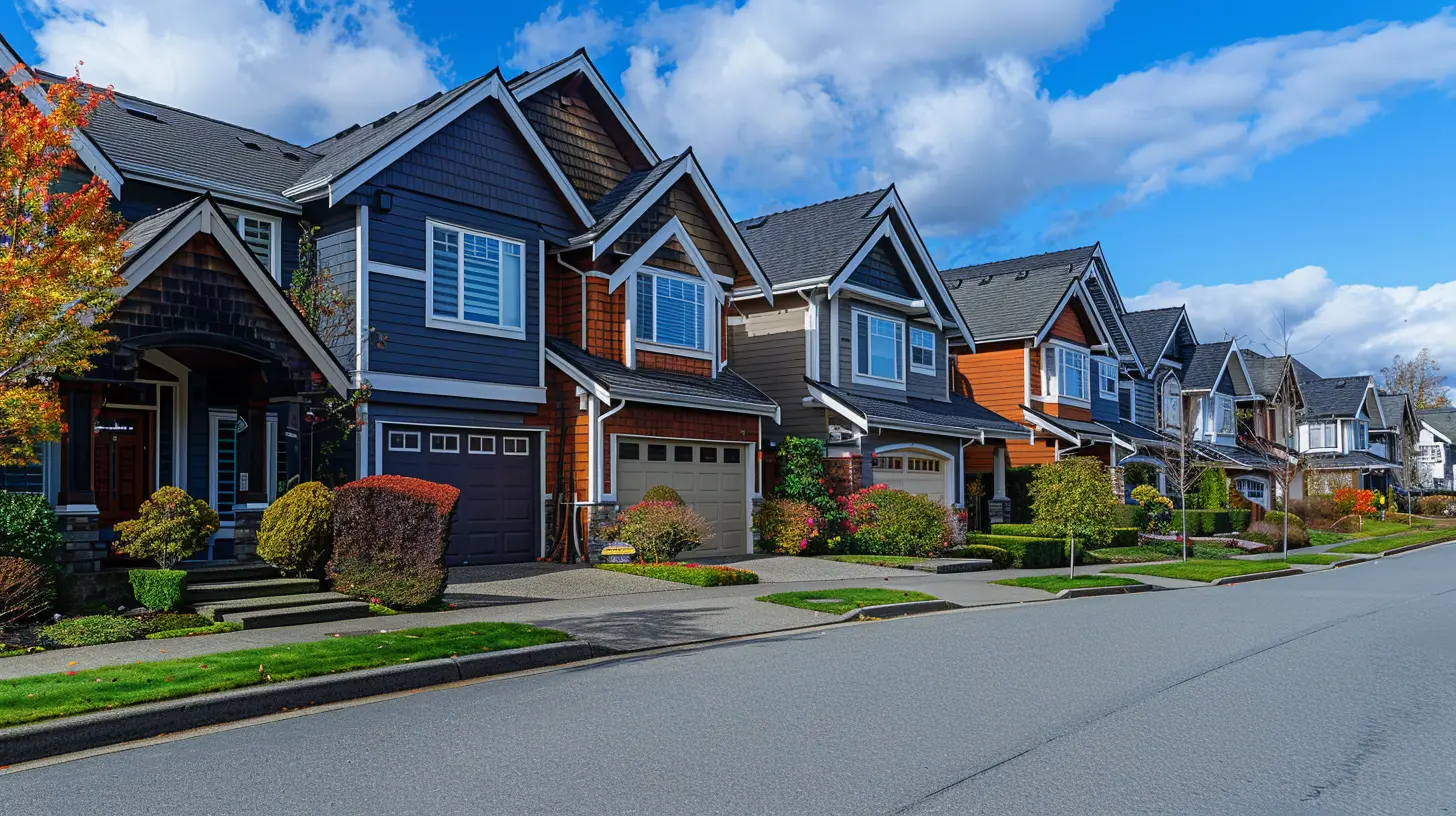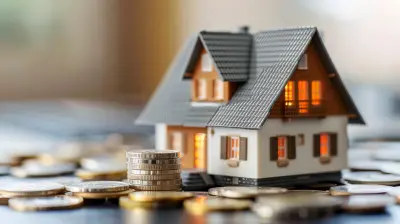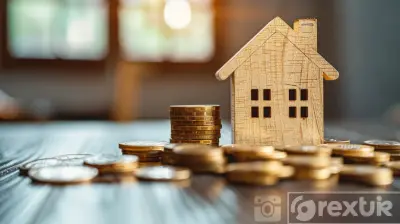How Fake Appraisals Are Used to Inflate Property Prices
6 August 2025
The real estate market is a tricky beast. Prices go up, prices go down, and sometimes, they skyrocket for no apparent reason. But what if I told you that some of those insane price jumps aren’t just due to market demand? What if shady tactics were pushing home values way beyond what they’re actually worth?
Welcome to the world of fake appraisals, where inflated property valuations are used to scam buyers, mislead lenders, and distort the housing market. Let’s break it all down.

What Is a Fake Appraisal?
A fake appraisal is when a property is given a fraudulent or inflated valuation, usually to justify a much higher selling price than what the home is actually worth. This can happen in a few different ways:- The appraiser might intentionally overvalue the property to benefit the seller or a developer.
- Real estate agents, investors, or homeowners may collude with corrupt appraisers to justify a higher asking price.
- Fraudsters may use fake documents or manipulate data to misrepresent a home’s true value.
This isn’t just a harmless case of stretching the truth—it’s a serious issue that leads to overpriced homes, unaffordable mortgages, and sometimes even market crashes.

How Do Fake Appraisals Inflate Property Prices?
So, how does a fraudulent appraisal actually cause home prices to rise? Here’s a step-by-step breakdown:1. Artificially High Comparables (Comps)
Appraisers (the honest ones) use comparable sales (or "comps") to determine a home’s value. They look at recently sold properties in the same area with similar size, features, and condition.But when fake appraisals enter the mix, suddenly homes in the area appear to be worth way more than they actually are. If one house is falsely appraised at a premium price, future appraisals might use that inflated number as a benchmark—creating a domino effect of rising prices.
2. Misrepresentation of Property Features
Ever seen a listing that claims a house is "luxury" or "fully renovated," but in reality, it’s a total fixer-upper? Fake appraisals often involve exaggerating or completely fabricating property details to justify a higher price.For example, dishonest appraisers might:
- Overstate the square footage
- Claim upgrades that don’t exist
- Misrepresent the home’s condition
- List incorrect neighborhood details
Essentially, they make the property seem more valuable than it is, tricking potential buyers into overpaying.
3. Fraudulent Collusion Between Parties
Real estate fraud is often a team effort. In many cases, it involves banks, real estate agents, developers, and even buyers all working together to artificially boost home values.Here’s how it plays out:
1. A buyer wants to take out a mortgage for more than the home’s actual worth.
2. A corrupt appraiser overvalues the home to secure loan approval.
3. The lender, often complicit or negligent, funds the loan.
4. The buyer, seller, and appraiser all walk away with more money—while the home remains wildly overpriced.
This game of financial musical chairs keeps going until it crashes, leaving homeowners and the economy in shambles.

Who Benefits from Fake Appraisals?
You might be wondering: Who’s getting rich off these scams? Well, it’s usually a mix of the following:1. Real Estate Investors & Developers
Some real estate investors inflate home prices on purpose to create artificial demand. By using fake appraisals, they make properties seem like a goldmine—tricking buyers into paying more than they should.2. Corrupt Appraisers
Not all appraisers are bad apples, but the ones who play dirty get paid handsomely for issuing inflated valuations. Some even do it under pressure from realtors or lenders who want to close deals fast.3. Dishonest Homeowners & Sellers
Homeowners looking to sell for top dollar might bribe an appraiser to inflate their home’s value. This makes their property seem like a rare gem, giving them an edge over other listings.4. Shady Mortgage Lenders
Some lenders ignore appraisal fraud on purpose—because when home values go up, they can approve bigger loans and make more money. The risk? If the bubble bursts, it’s the borrowers who suffer the most.
The Devastating Effects of Inflated Property Prices
Fake appraisals don’t just impact buyers—they hurt the entire economy. Here’s why:1. Buyers Overpay for Homes
Imagine paying $500,000 for a home that’s actually worth $400,000. That extra $100,000 is pure loss, and you’ll probably never get it back. Buyers stuck in these bad deals often struggle with massive mortgage payments for years.2. Higher Property Taxes
When homes are appraised too high, local governments increase property taxes based on inflated values. That means homeowners pay more, even if their homes aren’t actually worth that much.3. Increased Risk of Foreclosures
If home values are falsely inflated, homeowners may struggle to refinance or sell when they need to. Once reality catches up, they could end up underwater on their mortgages—owing more than the home’s actual value. This often leads to foreclosures, leaving families devastated.4. Real Estate Market Crashes
Remember the 2008 housing crisis? A big part of that disaster was due to inflated home prices and risky mortgages. When inflated properties can’t maintain their fake value, the market collapses, leading to a recession.How to Protect Yourself from Appraisal Fraud
If you’re buying or refinancing a home, you don’t want to get caught up in the scam. Here’s how to protect yourself:1. Hire an Independent Appraiser
Don’t just rely on the appraiser chosen by the lender or seller. Hire your own to get an unbiased valuation.2. Check the Comps Yourself
Look at recently sold homes in the area and compare their prices. If an appraisal seems way off, it probably is.3. Question Any Suspicious Valuations
Ask for a breakdown of the appraisal. If the numbers seem inflated or the property details don’t match reality, call it out.4. Beware of High-Pressure Sales Tactics
If a seller, agent, or lender is pushing you to accept an appraisal without question, that’s a red flag. Walk away.5. Report Suspicious Activity
If you suspect fraud, report it to the relevant authorities, such as the Federal Housing Finance Agency (FHFA), Consumer Financial Protection Bureau (CFPB), or your local real estate board.
Final Thoughts
The real estate market is already complicated enough without fraudsters manipulating home values. Fake appraisals are one of the many dirty tricks used to inflate prices, making homes harder to afford and the market more unstable.If you’re buying a home, don’t just trust what you’re told—do your own research, get multiple opinions, and stay sharp. Because in the world of real estate, what looks like a dream home might actually be someone else’s cash grab.
all images in this post were generated using AI tools
Category:
Real Estate ScamsAuthor:

Lydia Hodge
Discussion
rate this article
2 comments
Zacharias McQuaid
Fake appraisals undermine market integrity, enabling dishonest practices that inflate property prices and deceive buyers. This manipulation not only jeopardizes individual investments but also destabilizes the broader real estate market, highlighting the need for stringent oversight and transparency.
February 21, 2026 at 3:27 AM
Beatrix Hardy
“Fake appraisals: the real estate equivalent of using filters on your selfie. Sure, it looks good, but when the truth emerges, your ‘dream home’ might just be a ‘nightmare investment!’”
August 13, 2025 at 4:54 AM

Lydia Hodge
Exactly! Just like filtered selfies, fake appraisals can make a property seem more appealing than it really is, leading to costly surprises later.


